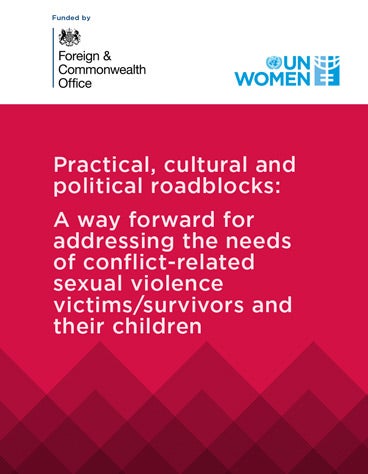
Practical, cultural and political roadblocks: A way forward for addressing the needs of conflict-related sexual violence victims/survivors and their children

Sexual violence is a widespread characteristic of conflict and post-conflict environments globally and within Asia-Pacific. Recognition of sexual and gender based violence in conflict has grown in recent years with national governments, civil society, the United Nations, practitioners and academics increasingly acting to prevent and respond to it. However, the immediate and mid-term needs of victims/survivors have often come secondary to advocacy efforts and pursuing accountability.
This paper provides an overview of three key obstacles to better addressing victim/survivor needs. These barriers have been identified as areas where policymakers and civil society actors can adopt practical strategies to shift the focus of conflict-related sexual violence (CRSV) response to a more victim-centred approach. Firstly, the evidence base on which responses to CRSV can be designed must be strengthened through an increased understanding of victim/survivor needs supported by comprehensive research and data on CRSV in the region. Secondly, while stigma is recognised as a global barrier to addressing CRSV, adopting a context-specific approach to the social, cultural and religious obstacles to changing social norms must be prioritised. Thirdly, political commitment to responding to victim/survivor needs at the national level must be strategically built by encouraging engagement in multiple tracks of CRSV response simultaneously.
The paper offers suggestions for a way forward that recognises the need to build the internal advocacy of victims/survivors and create survivor-led responses. It concludes with a practical framework for building a strategic and effective national architecture of policies and mechanisms, including National Action Plans on Women, Peace and Security, that can advance CRSV response and be locally implemented and harmonised with existing laws and policies, in order to deliver practical and meaningful benefits for victims/survivors.